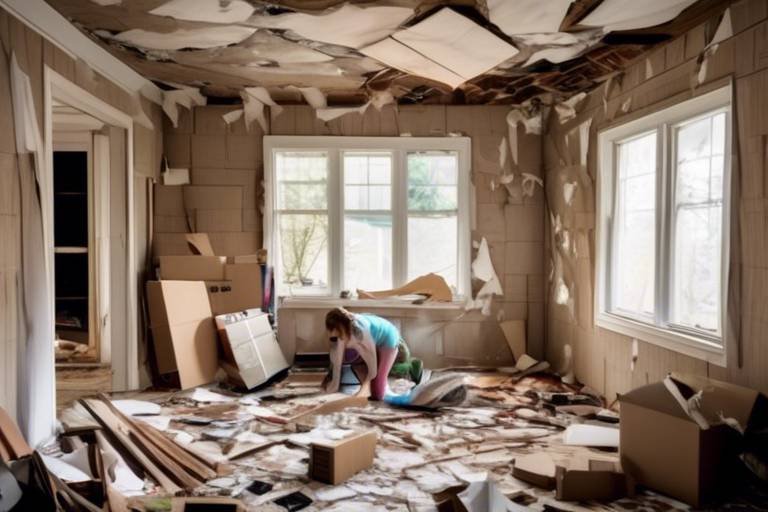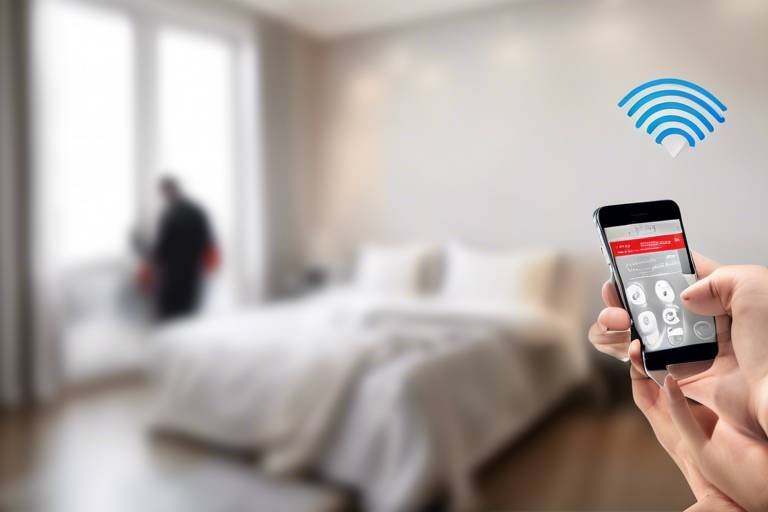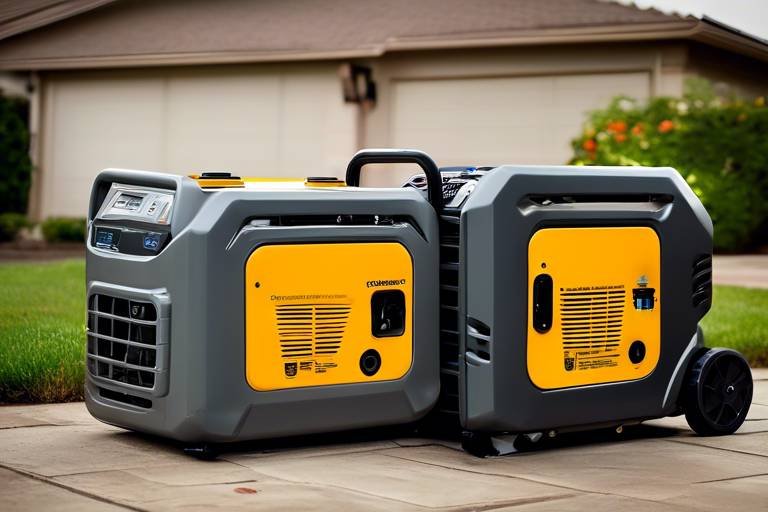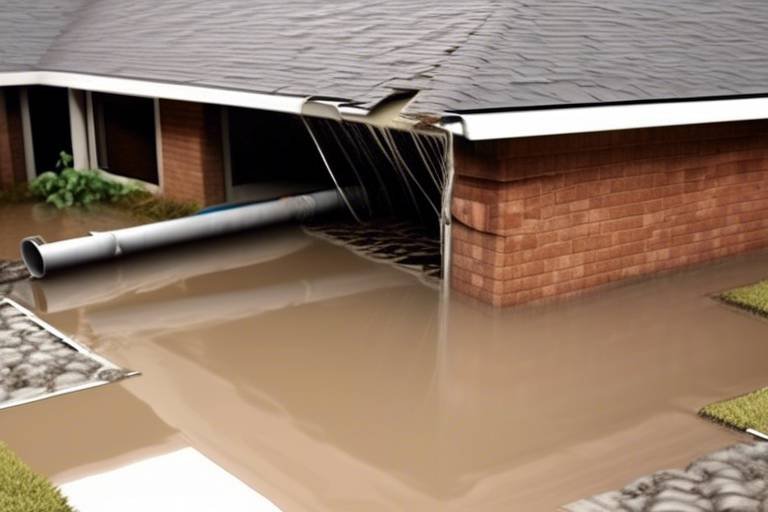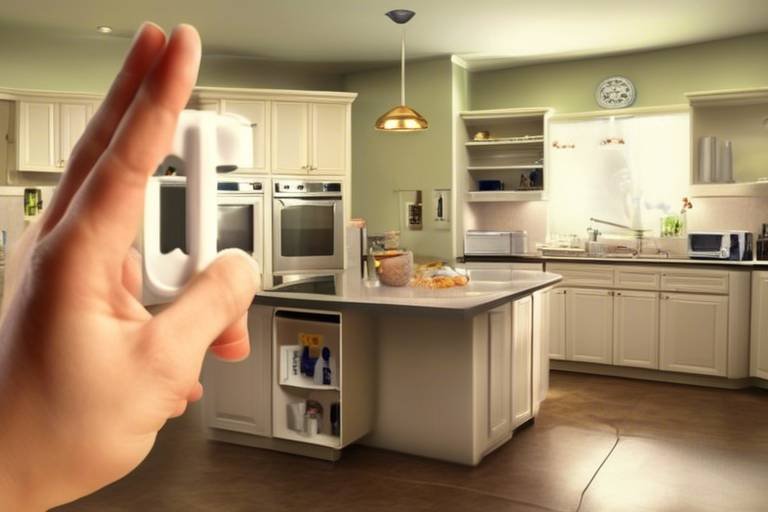Choosing the Right Security System for Your Home
When it comes to securing your home, the options can feel overwhelming. With advancements in technology and a plethora of products on the market, how do you choose the right security system that fits your needs? It’s like shopping for a new car; you want something reliable, efficient, and tailored to your lifestyle. This article will guide you through the essential factors to consider when selecting a home security system, including types of systems, features, costs, and professional versus DIY options to ensure optimal safety for your residence.
Home security systems come in various types, each with its unique benefits. You’ve got wired systems, which are like the sturdy old-school cars that have been around forever—dependable but can be a hassle to install. Then there are wireless systems, which are the sleek, modern vehicles of the security world—easy to install and flexible. Finally, smart systems are the high-tech Teslas, offering advanced features that integrate seamlessly with your home. Understanding these options is crucial in selecting the most suitable system that caters to your specific needs and preferences.
When choosing a security system, it’s essential to consider key features that enhance both the effectiveness and convenience of the system. Think of these features as the essential components of a well-oiled machine; without them, the system may not function optimally. Some must-have features include:
- Motion Detection: This feature alerts you to any unusual movement around your property, acting as a virtual watchman.
- Video Surveillance: Cameras provide a visual record of activity, which can be invaluable in deterring crime and assisting in investigations.
- Remote Access: The ability to monitor your home from anywhere using a smartphone app adds convenience and peace of mind.
These features not only enhance security but also provide homeowners with a sense of control over their environment.
Alarm systems serve as the first line of defense against intrusions. They can be monitored professionally or self-monitored, and understanding their functionalities is vital for effective home protection. Imagine an alarm system as a loyal guard dog; it barks when it senses danger, alerting you and potentially scaring off intruders.
Homeowners can choose between professional monitoring services or self-monitoring through mobile apps. Each option has its advantages and potential drawbacks, impacting the overall security experience. Professional monitoring offers 24/7 surveillance, ensuring immediate response in case of an emergency, while self-monitoring provides flexibility and control but may lack the quick response of a professional service.
A security system that integrates with smart home devices offers enhanced control and automation. Picture this: you can lock your doors, adjust your thermostat, and view your security cameras all from one app. This integration allows for seamless management of security alongside other home systems, creating a cohesive and efficient living environment.
Video surveillance systems provide visual monitoring of your property. They can deter crime and help in investigations, making them an important aspect of modern home security solutions. Think of them as your home’s eyes; they watch over your property when you’re not around, capturing every moment and ensuring nothing goes unnoticed.
Budgeting for a security system involves understanding both initial costs and ongoing expenses. It’s crucial to plan your finances wisely to avoid any unexpected surprises down the road. You wouldn’t want to invest in a system only to find out later that the monthly fees are more than you can handle.
Home security systems may involve upfront equipment costs and ongoing service fees. Understanding these costs helps homeowners plan their budgets effectively. For example, while a high-end system might cost more initially, it could save you money in the long run through lower insurance premiums and fewer break-ins.
For those on a tight budget, cost-effective security solutions are available. This section discusses DIY options and affordable systems that still offer reliable protection without breaking the bank. Think of it as finding a great deal on a quality product; you don’t have to sacrifice safety for affordability.
Deciding between professional installation and DIY can significantly affect the overall effectiveness of a security system. Each approach has its pros and cons, and understanding these can help homeowners choose wisely. Professional installation ensures that systems are set up correctly and optimally, much like having a skilled mechanic tune your car for peak performance.
Professional installation guarantees that your system is set up correctly, reducing the risk of errors that could compromise your security. It’s like having a safety net; you can rest easy knowing that experts are handling the technical details.
On the flip side, DIY installation offers flexibility and potential cost savings. Homeowners can customize their security setup according to their preferences, making it an appealing option for many. It’s akin to building your own furniture; you get to design it just the way you like it!
Customer reviews and ratings provide valuable insights into the performance and reliability of security systems. This section emphasizes the importance of research before making a purchase decision. Remember, what works for one person may not work for another, so it’s essential to gather as much information as possible.
Recognizing trusted brands in the security industry can simplify the decision-making process. Look for companies with a solid reputation and positive customer feedback. It’s like picking a restaurant; you want to go where the locals rave about the food!
User experiences can reveal strengths and weaknesses of various systems. This section focuses on how to leverage reviews to make informed choices about home security solutions. Consider reviews as your guide; they can help you navigate the vast sea of options and find what truly works.
As technology evolves, ensuring your security system remains effective is crucial. This section discusses how to select systems that can adapt to future advancements and changing security needs. You wouldn’t want to invest in a system that becomes obsolete in a few years, right?
Choosing a scalable security system allows for easy upgrades as technology improves. This section outlines key considerations for selecting systems that can grow with your needs. Think of it as investing in a modular home; you can add on as your family grows or your needs change.
Keeping informed about the latest security trends helps homeowners stay ahead of potential threats. This section emphasizes the importance of continuous education in maintaining home security. After all, knowledge is power, and being proactive is your best defense.
Q: What is the best type of security system for my home?
A: The best type depends on your specific needs, preferences, and budget. Consider factors like installation type, features, and whether you want professional monitoring.
Q: Are DIY security systems effective?
A: Yes, many DIY systems are effective and can provide reliable protection, especially if you choose reputable brands and follow installation instructions carefully.
Q: How much should I budget for a home security system?
A: Budgeting varies widely based on the type of system and features. It’s essential to consider both initial and recurring costs to avoid surprises.

Understanding Different Types of Security Systems
When it comes to safeguarding your home, understanding the different types of security systems available is essential. Each type serves a unique purpose and offers various features that can cater to your specific needs. Let's break down the main categories of security systems:
First up, we have wired security systems. These systems are hardwired into your home, meaning they rely on physical connections to function. While they tend to be more reliable due to fewer interference issues, installation can be a bit invasive, requiring drilling and extensive setup. However, once installed, they often provide robust security and are less susceptible to hacking.
On the other hand, wireless security systems have gained immense popularity in recent years. With no need for wires, these systems are easier to install and can be set up in a matter of minutes. They use radio signals to communicate between devices, making them highly flexible. However, they may be more vulnerable to hacking, which is a critical factor to consider.
Lastly, we have the smart security systems. These are the latest in home security technology, integrating with your smartphone and other smart devices. Imagine being able to monitor your home from anywhere in the world! Smart systems often come with advanced features such as remote access, real-time alerts, and even integration with other smart home devices like lights and thermostats. This not only enhances security but also adds a layer of convenience to your daily life.
To help you visualize these options better, here's a quick comparison:
| Type of System | Installation | Reliability | Vulnerability |
|---|---|---|---|
| Wired Security Systems | Invasive installation | High | Low |
| Wireless Security Systems | Easy installation | Medium | Medium |
| Smart Security Systems | Easy installation | High | High |
In conclusion, choosing the right type of security system is about finding the perfect balance between your needs, budget, and the level of security you desire. Whether you prefer the reliability of wired systems, the flexibility of wireless options, or the cutting-edge technology of smart systems, each has its own set of benefits and drawbacks. Take your time to evaluate these options carefully, and you'll be well on your way to securing your home effectively!
Q: What type of security system is best for my home?
A: The best type depends on your specific needs, budget, and the layout of your home. Wired systems are reliable but invasive, while wireless systems are flexible but may be more vulnerable. Smart systems offer convenience but require a stable internet connection.
Q: Can I install a security system myself?
A: Yes! Many wireless and smart security systems are designed for easy DIY installation. However, if you prefer a hassle-free experience, consider professional installation.
Q: How often should I update my security system?
A: It's advisable to review your security system every few years or whenever you notice changes in your home or lifestyle. Technology evolves quickly, and staying updated can enhance your security.
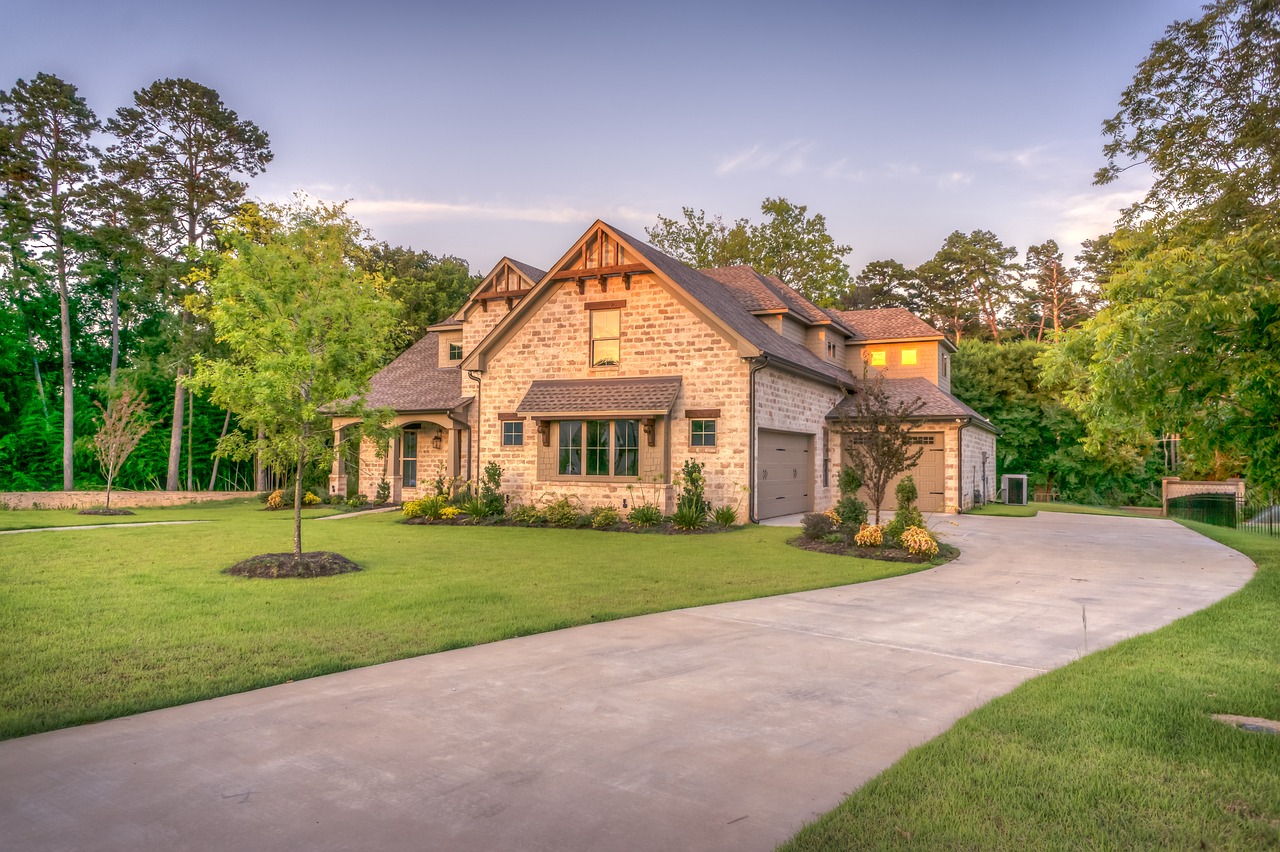
Key Features to Look For
When it comes to selecting a home security system, understanding key features can make all the difference. It's not just about having a camera or an alarm; it's about ensuring that the system you choose aligns with your specific safety needs. Motion detection is one of the most essential features to consider. Imagine being alerted the moment someone steps onto your property—this feature helps you stay one step ahead of potential intruders. Additionally, video surveillance is crucial. High-definition cameras allow you to monitor your home in real time and provide valuable evidence in case of an incident.
Another vital aspect is remote access. With modern technology, you can control your security system from anywhere through your smartphone. This means that whether you're at work, on vacation, or just out for a quick errand, you can check in on your home. This capability gives you peace of mind and ensures that you can respond quickly if something seems off. Furthermore, some systems offer two-way audio, allowing you to communicate with anyone on your property through your security cameras. This feature can be particularly useful for deterring unwanted visitors.
Moreover, integration with smart home devices can significantly enhance your security experience. A system that works seamlessly with your smart thermostat, lights, or door locks means you can create a comprehensive security network. For instance, imagine your lights automatically turning on when motion is detected, or your door locking itself when you leave home. This kind of automation not only boosts security but also adds convenience to your daily routine.
To help you visualize these features, here’s a simple table highlighting some of the most sought-after functionalities in home security systems:
| Feature | Description | Benefits |
|---|---|---|
| Motion Detection | Alerts you when movement is detected in designated areas. | Immediate notifications enhance responsiveness. |
| Video Surveillance | Provides live and recorded footage of your property. | Deters crime and aids investigations. |
| Remote Access | Control your system via smartphone or tablet. | Convenience and peace of mind while away. |
| Two-Way Audio | Communicate with visitors or intruders through your camera. | Deters unwanted visitors and enhances interaction. |
| Smart Home Integration | Connects with other smart devices in your home. | Creates a cohesive and automated security environment. |
Ultimately, the right security system for your home should not only protect your property but also provide you with a sense of safety and control. By focusing on these key features, you can make an informed decision that enhances your home’s security and fits your lifestyle.
Q: What should I prioritize when choosing a security system?
A: Focus on key features like motion detection, video surveillance, and remote access. These features significantly enhance your security.
Q: Are smart home integrations necessary for a security system?
A: While not necessary, they can greatly enhance convenience and control over your security setup.
Q: How much should I expect to spend on a home security system?
A: Costs can vary widely based on features and installation options. It's essential to consider both initial and ongoing expenses when budgeting.
Q: Is professional monitoring worth it?
A: Professional monitoring can provide peace of mind and immediate response in emergencies, making it a valuable option for many homeowners.

Alarm Systems
When it comes to safeguarding your home, are often the first line of defense against potential intruders. Think of them as your home's vigilant watchdog, always on alert and ready to sound the alarm at the slightest hint of trouble. These systems can be categorized into two main types: professionally monitored and self-monitored. Each type has its unique functionalities and benefits, making it essential to understand how they work to choose the right one for your needs.
Professional monitoring services typically offer 24/7 surveillance, meaning that trained personnel will respond to alerts and notify the authorities if necessary. This is akin to having a security team on standby, ready to spring into action at a moment's notice. On the other hand, self-monitoring through mobile apps gives you the freedom to keep an eye on your home from anywhere. You receive alerts directly to your phone, allowing you to take immediate action. However, it also means that the responsibility for response falls squarely on your shoulders.
In addition to the basic alarm functionality, modern alarm systems come equipped with a variety of features that enhance their effectiveness. Here are some of the key features to consider:
- Motion Detection: Sensors that can detect movement and trigger the alarm if something unusual is detected.
- Window and Door Sensors: These sensors alert you if doors or windows are opened unexpectedly.
- Smartphone Alerts: Instant notifications sent to your phone when the alarm is triggered.
- Integration with Other Security Devices: The ability to connect with cameras, lights, and other smart devices for a comprehensive security solution.
Understanding the functionalities of these systems is vital for effective home protection. For instance, imagine you’re on vacation, and your alarm system detects motion in your backyard. A professionally monitored alarm will alert the monitoring center, who can then dispatch the police, while a self-monitored system will send you a notification, allowing you to take action. This distinction can mean the difference between a quick response and a missed opportunity to prevent a break-in.
Moreover, the technology behind alarm systems has evolved significantly. Many systems now offer wireless options that are easier to install and can be controlled via smartphone apps. This means you can arm or disarm your system, check the status, and even view live feeds from your security cameras—all from the palm of your hand! It's like having a control center for your home security, no matter where you are.
In conclusion, choosing the right alarm system involves considering your lifestyle, budget, and the level of security you desire. Whether you opt for professional monitoring or a self-monitored system, the key is to ensure that your home remains a safe haven. After all, peace of mind is priceless, and an effective alarm system is a crucial step toward achieving that tranquility.
- What is the difference between a wired and wireless alarm system? Wired systems require physical connections, while wireless systems use radio signals, making installation easier and more flexible.
- How often should I test my alarm system? It's recommended to test your alarm system at least once a month to ensure all components are functioning properly.
- Can I integrate my alarm system with smart home devices? Yes, many modern alarm systems are designed to integrate seamlessly with smart home technology for enhanced security.
- What should I do if my alarm goes off accidentally? If your alarm is triggered accidentally, contact your monitoring service or follow your system's protocol for disarming it to avoid unnecessary police response.

Monitoring Options
When it comes to securing your home, the available can significantly influence your peace of mind. Homeowners typically face a choice between professional monitoring services and self-monitoring through mobile applications. Each option has its own set of advantages and drawbacks, making it essential to weigh them carefully before making a decision.
Professional monitoring offers the benefit of having trained experts watch over your property 24/7. This means that in the event of an alarm trigger, the monitoring center will immediately assess the situation and take appropriate action, whether that’s contacting you, dispatching local authorities, or both. This can be particularly comforting for those who travel frequently or spend long hours away from home. However, this service often comes with a monthly fee, which can add up over time.
On the other hand, self-monitoring has gained popularity thanks to the rise of smartphone technology. With self-monitoring, you can receive instant alerts directly to your phone whenever there’s unusual activity detected. This option allows for greater flexibility and can be more cost-effective, as many DIY systems come with no monthly fees. However, it does place the responsibility of responding to alerts squarely on your shoulders. If you’re busy or away from your phone, critical moments might slip by unnoticed.
To help you navigate these options, here's a quick comparison:
| Feature | Professional Monitoring | Self-Monitoring |
|---|---|---|
| 24/7 Monitoring | Yes | No |
| Cost | Monthly Fee | Usually Free |
| Emergency Response | Immediate | Depends on User |
| Control | Less Control | Full Control |
Ultimately, the right choice boils down to your lifestyle and personal preferences. If you value convenience and peace of mind, professional monitoring may be the way to go. However, if you’re tech-savvy and prefer to be in control, self-monitoring could be the perfect fit. Whichever you choose, ensuring that you have a reliable monitoring system in place is crucial for keeping your home safe.
- What is the average cost of professional monitoring? Professional monitoring typically ranges from $15 to $60 per month, depending on the features and services offered.
- Can I switch from self-monitoring to professional monitoring later? Yes, many systems allow you to upgrade your monitoring option at any time.
- Is self-monitoring effective? Yes, self-monitoring can be effective, especially if you are diligent about checking alerts and responding promptly.
- Do I need a contract for professional monitoring? Most professional monitoring services require a contract, but some offer month-to-month options.

Integration with Smart Home Devices
In today's tech-savvy world, integrating your security system with smart home devices is not just a luxury; it's becoming a necessity. Imagine being able to control your security system, lights, and even your thermostat all from your smartphone! This level of integration not only enhances your home’s security but also adds convenience to your daily life.
When selecting a security system, look for options that are compatible with popular smart home platforms such as Amazon Alexa, Google Assistant, or Apple HomeKit. This compatibility allows you to use voice commands to arm or disarm your system, check camera feeds, and receive alerts without lifting a finger. It’s like having a personal assistant dedicated to your home security!
Moreover, integrating your security system with smart home devices can lead to improved energy efficiency. For example, you can set your lights to turn on automatically when your security system is armed, or program your thermostat to adjust when you leave home. This not only enhances security but also helps you save on energy costs.
Here are some key benefits of integrating your security system with smart home devices:
- Remote Access: Monitor and control your home security from anywhere using your smartphone.
- Enhanced Automation: Create routines that link your security system with other smart devices.
- Real-Time Alerts: Receive instant notifications about security events directly on your smart device.
Ultimately, the integration of smart home technology with your security system creates a holistic approach to home safety. It allows for a seamless experience where you can manage all aspects of your home’s security and functionality in one place. As technology continues to evolve, staying updated with the latest innovations will ensure that your home remains a safe haven.
1. What types of smart home devices can integrate with my security system?
Most security systems can integrate with devices such as smart locks, cameras, lights, and thermostats. Check the specifications of your chosen system for compatibility.
2. Is it difficult to set up a smart home security system?
Not at all! Many systems are designed for easy installation, and manufacturers often provide step-by-step guides to help you through the process.
3. Will integrating smart devices increase my monthly bills?
While some smart devices may have associated service fees, many can actually help you save money in the long run by improving energy efficiency and reducing the risk of theft.
4. Can I control my security system when I'm away from home?
Yes! Most modern security systems allow you to monitor and control your system remotely through a dedicated app on your smartphone.

Video Surveillance Systems
Video surveillance systems have become an essential part of modern home security, providing homeowners with a powerful tool to monitor their properties effectively. Imagine being able to check in on your home from anywhere in the world, all through a simple app on your smartphone. This level of convenience and peace of mind is what video surveillance offers. These systems not only deter crime but also provide crucial evidence in the unfortunate event of an incident.
When considering video surveillance for your home, it’s vital to understand the different types available. There are several options to choose from, including:
- Wired Cameras: These require a physical connection to a power source and a recording device. They are often more reliable in terms of video quality and connection stability.
- Wireless Cameras: These are easier to install and can be placed in various locations without the need for extensive wiring. However, they may be more vulnerable to interference.
- Smart Cameras: These integrate with your smart home systems, allowing for remote access and control through your smartphone or other devices.
Additionally, video surveillance systems can vary in features. Some of the key functionalities to look for include:
- High Definition (HD) Video: Clarity is crucial when it comes to identifying intruders or detailing incidents.
- Night Vision: This feature allows cameras to capture clear footage even in low-light conditions, enhancing security during nighttime.
- Motion Detection: Cameras equipped with motion sensors can alert you to movement, ensuring you’re aware of any unusual activity.
- Cloud Storage: This option provides a secure way to store footage without the need for physical storage devices.
Moreover, the installation of video surveillance systems can be tailored to fit your specific needs and preferences. Whether you want a single camera focused on your front door or a comprehensive system covering multiple angles of your property, the options are virtually limitless. The ability to customize your setup ensures that you can protect your home in the way that best suits your lifestyle.
One of the major benefits of video surveillance systems is their ability to act as a deterrent. Just the presence of a camera can discourage potential intruders from targeting your home. Furthermore, in the event of a crime, having recorded footage can be invaluable for law enforcement and insurance claims. It’s like having an extra set of eyes watching over your home 24/7, providing you with a sense of security that is hard to match.
In conclusion, investing in a video surveillance system not only enhances your home’s security but also offers peace of mind. As technology continues to evolve, these systems are becoming more sophisticated, providing homeowners with advanced features that make monitoring their property easier and more effective than ever before.
- What is the difference between wired and wireless surveillance systems? Wired systems are connected through cables and typically offer more stable connections, while wireless systems are easier to install and can be placed in various locations without extensive wiring.
- How can I access my video surveillance footage? Most modern systems allow for remote access through a smartphone app or web portal, enabling you to view live footage or recorded clips from anywhere.
- What should I do if my camera detects motion? Many systems send alerts to your phone, allowing you to check the live feed and take appropriate action if necessary.
- Are video surveillance systems worth the investment? Yes, they provide not only a deterrent effect against crime but also valuable evidence in case of incidents, making them a worthwhile investment for home security.

Assessing Costs and Budgeting
When it comes to choosing a home security system, one of the most important factors to consider is cost. After all, you want to ensure that your investment not only provides optimal protection but also fits comfortably within your budget. Understanding the different costs associated with security systems can be a bit overwhelming, but it’s essential for making informed decisions. So, let’s break it down!
First off, you need to distinguish between initial costs and recurring expenses. Initial costs typically include the price of the equipment, such as cameras, sensors, and alarms. Depending on the complexity and features of the system you choose, these costs can vary significantly. For example, a basic system might set you back a few hundred dollars, while a more advanced setup with smart technology can run into the thousands.
On the other hand, recurring expenses usually involve monitoring fees, which can range from $10 to $50 per month, depending on the service provider and the level of monitoring you choose. This is where many homeowners find themselves caught off guard, as these fees can add up over time. It’s crucial to factor in these ongoing costs when budgeting for your security system.
| Cost Type | Estimated Price |
|---|---|
| Basic Equipment | $200 - $500 |
| Advanced Equipment | $500 - $2000+ |
| Monthly Monitoring Fees | $10 - $50 |
Now, if you’re on a tight budget, don’t worry! There are cost-effective solutions available that still provide reliable protection. Many homeowners are turning to DIY security systems, which can be a great way to save money. These systems often come with user-friendly installation instructions and can be tailored to your specific needs. While the upfront cost might be lower, keep in mind that you may forgo some of the advanced features that professional systems offer.
Another option to consider is looking for promotions or bundled packages offered by security companies. Many providers offer discounts for long-term contracts or for bundling services like home automation with security systems. Always be on the lookout for these deals, as they can significantly reduce your overall expenses.
Ultimately, the key to effectively budgeting for a home security system is to conduct thorough research and compare different options. Take the time to read customer reviews and consult with professionals if necessary. By doing so, you’ll not only find a system that meets your safety needs but also fits your financial plan.
- What is the average cost of a home security system? The average cost can range from $200 to over $2000 for equipment, plus monthly monitoring fees of $10 to $50.
- Are DIY security systems effective? Yes, DIY systems can be very effective, especially for budget-conscious homeowners. However, they may lack some advanced features found in professional systems.
- How can I reduce my security system costs? Look for promotions, consider DIY options, and compare different providers to find the best deals.
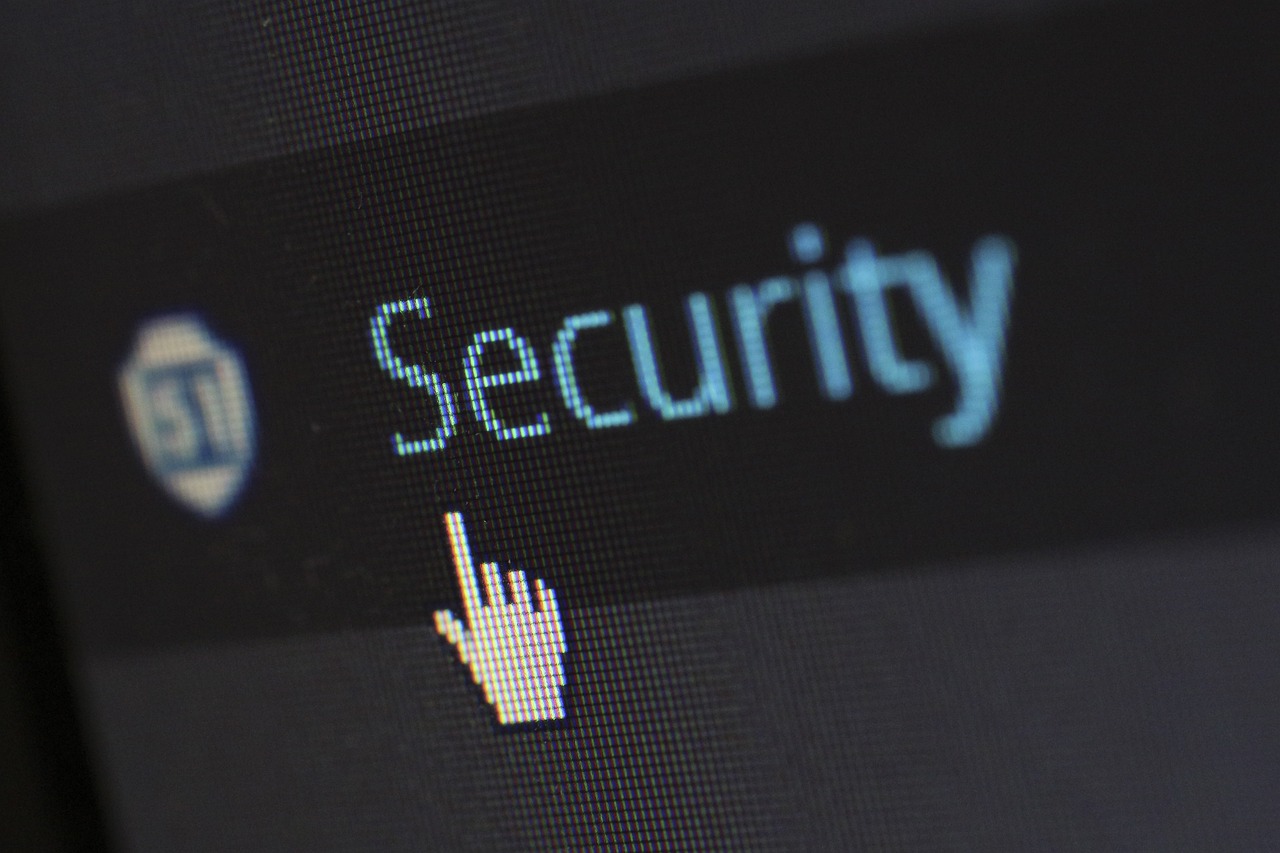
Initial vs. Recurring Costs
When it comes to investing in a home security system, understanding the financial landscape is essential. Homeowners often find themselves grappling with two primary types of costs: the initial costs and the recurring costs. The initial costs refer to the upfront expenses that you will incur when purchasing and installing your security system. This can include the price of the equipment, such as cameras, alarms, and sensors, as well as installation fees if you opt for professional help. On average, homeowners can expect to spend anywhere from $200 to $1,500 for a comprehensive security setup, depending on the complexity and features of the system.
On the other hand, recurring costs come into play after the system is up and running. These are ongoing expenses that can include monthly monitoring fees, maintenance costs, and potential upgrades. Monthly monitoring services typically range from $10 to $50, depending on the level of service you choose. Some systems might also require you to subscribe to cloud storage services for video footage, which can add another $5 to $30 to your monthly bill. It’s crucial to factor in these costs when budgeting for your home security system, as they can add up over time.
To help you visualize the difference between these costs, here’s a simple breakdown:
| Cost Type | Examples | Estimated Range |
|---|---|---|
| Initial Costs | Equipment purchase, installation fees | $200 - $1,500 |
| Recurring Costs | Monthly monitoring fees, cloud storage | $10 - $80/month |
Ultimately, the choice between different systems and their associated costs should align with your budget and security needs. It's always a good idea to conduct thorough research and consider both the initial and recurring costs before making a decision. This comprehensive understanding will empower you to choose a system that not only fits your financial situation but also offers the peace of mind you deserve in protecting your home.
- What are the average initial costs for a home security system? Initial costs typically range from $200 to $1,500, depending on the equipment and installation choices.
- What recurring costs should I expect? Recurring costs can include monthly monitoring fees and cloud storage subscriptions, generally ranging from $10 to $80 per month.
- Is DIY installation cheaper than professional installation? Yes, DIY installation can save on labor costs, but professional installation ensures optimal setup and functionality.
- How can I reduce my security system costs? Consider DIY options, look for package deals, and choose systems that offer no-contract monitoring plans.

Cost-Effective Solutions
When it comes to securing your home, the thought of spending a fortune can be daunting. However, affordable options exist that provide reliable protection without draining your wallet. In fact, investing in a cost-effective security system is like putting on a sturdy helmet before riding a bike; it gives you peace of mind and keeps you safe without being overly complicated or expensive.
One of the most appealing aspects of modern security systems is the availability of DIY options. These systems allow homeowners to take control of their security setup, often at a fraction of the cost of professional installations. With a little research and some basic tools, you can install a system that meets your needs while saving money. For example, many DIY kits come equipped with essential components like motion sensors, cameras, and alarms that can be easily set up without the need for professional help.
Here's a quick overview of some you might consider:
- Wireless Security Cameras: These cameras are easy to install and can be monitored via smartphone apps, making them a great option for homeowners looking for flexibility.
- Smart Doorbells: They not only provide a visual of who’s at your door but also offer two-way communication, enhancing your home’s security.
- Motion Sensor Lights: These lights can deter intruders and are relatively inexpensive to install, adding an extra layer of security to your property.
Another effective strategy is to explore bundled security packages from reputable companies. Often, these packages offer a combination of devices at a discounted rate, making them more affordable than purchasing items individually. For instance, a package might include a camera, door sensors, and a control panel, all at a price that’s less than buying each component separately.
Additionally, consider the potential savings from monitoring services. Some companies provide basic monitoring options at lower rates, allowing you to maintain a level of security without overspending. This way, you can still have peace of mind knowing that your home is being monitored, even if you choose not to invest in the most expensive systems.
In summary, there are plenty of cost-effective solutions available for homeowners looking to enhance their security without breaking the bank. By opting for DIY installations, bundling services, or choosing basic monitoring options, you can achieve a secure home environment that fits your budget. Remember, a little creativity and research can go a long way in ensuring your home remains safe and sound.

Professional vs. DIY Installation
When it comes to securing your home, one of the most crucial decisions you'll face is whether to opt for professional installation or take the DIY route. Each approach has its unique set of advantages and disadvantages, and understanding these can help you make an informed choice that best fits your lifestyle and security needs. Imagine setting up a security system as building a fortress; you can either hire skilled architects and builders or try to construct it yourself with the tools at hand. Let's delve into the details!
Choosing professional installation often guarantees that your security system is set up correctly and optimized for maximum effectiveness. Professionals bring a wealth of experience and knowledge, ensuring that every sensor is placed strategically, every camera is angled perfectly, and the entire system is integrated seamlessly. This can be especially beneficial if your home has unique architectural features or if you're installing more complex systems that require extensive wiring or programming. Additionally, many professional services offer warranties and ongoing support, giving you peace of mind that any issues can be resolved quickly and efficiently.
However, the convenience of professional installation comes with a price tag. It can be a significant portion of your overall security budget. If you're looking to save some cash, going the DIY route might be more appealing. With a plethora of user-friendly security systems available today, many homeowners find that they can install these systems themselves without much hassle. You can customize your setup according to your preferences, choosing the location of cameras, sensors, and alarms. Plus, there's a certain satisfaction in knowing you took the initiative to protect your home!
Yet, it's important to consider that DIY installation isn't without its challenges. If you're not tech-savvy or if you lack the necessary tools, you might find yourself frustrated during the installation process. Mistakes can lead to ineffective security measures, which defeats the purpose of having a security system in the first place. In some cases, improper installation can even void warranties or lead to additional costs down the line.
To help you weigh your options, here's a quick comparison of professional vs. DIY installation:
| Criteria | Professional Installation | DIY Installation |
|---|---|---|
| Cost | Higher initial investment | Lower upfront costs |
| Expertise | Installed by trained professionals | Requires personal knowledge or research |
| Time | Typically quicker installation | May take longer depending on experience |
| Support | Ongoing support and warranty | Limited to self-research and online resources |
In conclusion, the choice between professional and DIY installation ultimately depends on your individual needs, budget, and comfort level with technology. If you value peace of mind and expert support, professional installation might be the way to go. However, if you're looking to save money and enjoy a hands-on project, DIY installation could be an exciting challenge. Just remember, whichever path you choose, the main goal is to ensure your home is protected!
Q: What are the main benefits of professional installation?
A: Professional installation ensures that your security system is set up correctly and efficiently, often includes ongoing support, and can save you time and frustration.
Q: Can I install a security system myself?
A: Yes, many modern security systems are designed for easy DIY installation. However, you should have a basic understanding of technology to avoid common pitfalls.
Q: What factors should I consider when deciding between professional and DIY installation?
A: Consider your budget, technical skills, the complexity of the system, and whether you prefer the assurance of professional support.

Benefits of Professional Installation
When it comes to securing your home, professional installation of your security system can be a game changer. Imagine having experts who not only understand the ins and outs of the technology but also know the best practices for ensuring your home is as safe as possible. One of the primary benefits of hiring professionals is their expertise. These individuals are trained to install security systems efficiently, which means they can pinpoint the most vulnerable areas of your home and optimize the placement of cameras, sensors, and alarms. This strategic setup can significantly enhance your overall security.
Another notable advantage is the time-saving aspect. Installing a security system can be a daunting task, especially if you’re not tech-savvy. Professionals can complete the installation in a fraction of the time it would take you to do it yourself, allowing you to focus on other important aspects of your life. Plus, they often provide a thorough walkthrough of the system's features, ensuring you know how to use it effectively. This training is invaluable, as it empowers you to take full advantage of your investment.
Moreover, professional installation often comes with a warranty or guarantee on their work. This means that if something goes wrong within a specified period, you can rely on them to fix it without additional costs. This peace of mind is something that DIY installations typically lack, as any issues that arise would fall squarely on your shoulders. Additionally, many security companies offer ongoing support and maintenance services, ensuring that your system remains up-to-date and functioning optimally.
Lastly, let’s not overlook the aesthetic aspect. Professionals are trained to install systems in a way that is not only functional but also visually appealing. A well-installed system can blend seamlessly into your home’s design, avoiding the cluttered look that often comes with DIY installations. In essence, choosing professional installation means investing in a comprehensive service that prioritizes your safety, convenience, and peace of mind.
- What should I expect during professional installation? You can expect a thorough evaluation of your home, recommendations for the best security solutions, and a complete setup of your system.
- How long does the installation process take? Typically, installation can take anywhere from a few hours to a full day, depending on the complexity of your system.
- Will I receive training on how to use my new system? Yes, professional installers usually provide a detailed walkthrough of the system's features and functionalities.
- What if I need support after installation? Most professional services offer ongoing support and maintenance, ensuring your system remains effective over time.
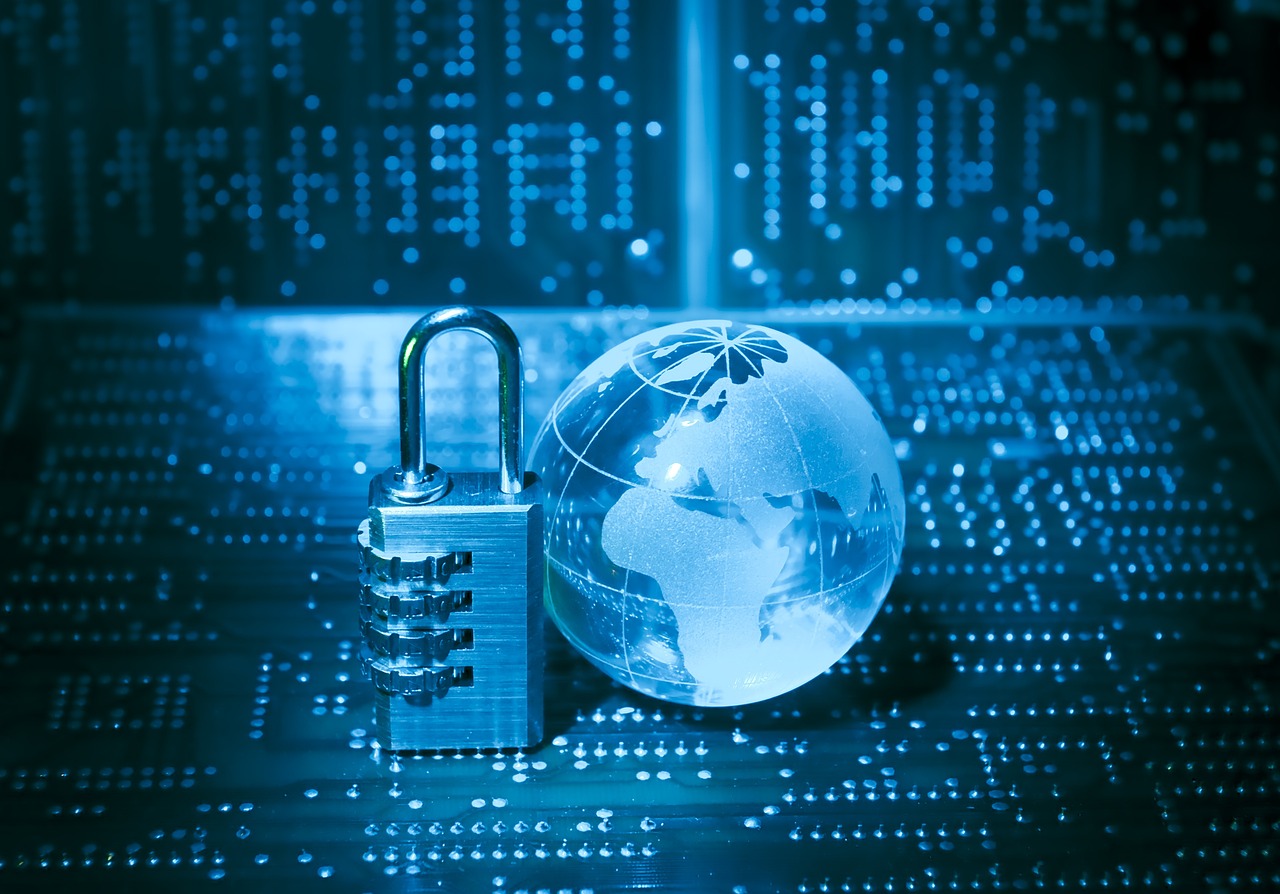
Advantages of DIY Installation
Choosing to install your own home security system can be a game-changer, providing a sense of empowerment and control over your safety. One of the most significant is the flexibility it offers. You can set up your system at your own pace, allowing you to take the time to ensure every component is perfectly placed. Unlike professional installations, which often operate on a tight schedule, DIY allows you to customize your setup according to your specific needs and preferences. Imagine being able to move cameras around without needing to schedule a technician—it's like having the freedom to paint your own masterpiece!
Another major benefit is the potential for cost savings. Professional installation fees can add a hefty amount to your overall security budget. By taking the DIY route, you can allocate those funds towards more equipment or even upgrades. For instance, a basic security system might cost you around $200 for the equipment, but professional installation could easily add another $100 to $300 to that price. With DIY, you keep that cash in your pocket while still achieving a reliable setup.
Moreover, DIY installation often comes with a learning curve that can be incredibly rewarding. As you navigate through the setup process, you gain valuable knowledge about your system and how it works. This understanding can be beneficial if you ever need to troubleshoot issues or make adjustments in the future. It’s like learning to ride a bike—you might wobble a bit at first, but once you get the hang of it, you can ride confidently on your own!
Additionally, many modern security systems are designed with user-friendly interfaces and intuitive instructions. Most products come with detailed manuals and online resources, including video tutorials, that guide you through the installation process step-by-step. This accessibility means that even those who aren’t particularly tech-savvy can successfully set up their own systems. In fact, many users report feeling a sense of accomplishment after completing their installations, akin to finishing a challenging puzzle.
Finally, the ability to easily modify your system as your needs change is a significant advantage. Whether you're moving to a new home or simply want to upgrade your equipment, DIY installations allow you to adapt without the hassle of hiring professionals. You can add new cameras, sensors, or smart devices whenever you like. This adaptability ensures that your security system can grow alongside you, meeting your evolving needs effortlessly.
In summary, while professional installation has its merits, the are compelling. From cost savings to flexibility and the satisfaction of doing it yourself, many homeowners find that taking the DIY approach suits their lifestyle and security needs perfectly. So, if you’re considering a home security system, why not roll up your sleeves and dive into the world of DIY? You might just find it’s more rewarding than you ever imagined!
- Can I install a security system myself? Yes, many modern security systems are designed for easy DIY installation, complete with user guides and online resources.
- What tools do I need for DIY installation? Typically, you’ll need basic tools like a screwdriver, a drill, and possibly a ladder, depending on where you’re placing your devices.
- Are DIY security systems reliable? Absolutely! Many DIY systems offer the same level of reliability and features as professionally installed systems.
- Can I upgrade my DIY system later? Yes, one of the benefits of DIY installations is that you can easily add or upgrade components as needed.

Evaluating Customer Reviews and Ratings
When it comes to selecting the right security system for your home, customer reviews and ratings are invaluable resources. They provide a glimpse into the real-world performance of different systems, allowing homeowners to make informed decisions based on actual user experiences. Just like you wouldn’t buy a car without checking its reviews, the same principle applies to security systems. After all, this is about protecting your home and loved ones!
Before diving into the sea of reviews, it’s essential to know what to look for. Pay attention to the overall rating of the product, but don’t stop there. Read through individual reviews to get a sense of common themes. Are users consistently praising the ease of installation? Or are there frequent complaints about customer service? This information is crucial in evaluating whether a system will meet your needs.
Here are some key aspects to consider when examining customer reviews:
- Performance: How well does the system work in real-life scenarios? Look for comments on the reliability of alarms and the effectiveness of motion sensors.
- Ease of Use: Is the system user-friendly? Reviews often highlight whether the app is intuitive and whether users have encountered any issues navigating the system.
- Customer Support: A responsive customer service team can make all the difference, especially if you encounter issues after installation. Look for reviews that mention the support experience.
- Value for Money: Does the system provide good features for the price? Users often discuss whether they feel their investment was worth it.
In addition to user reviews, consider checking for third-party ratings from organizations like the Better Business Bureau (BBB) or Consumer Reports. These ratings can help you identify trusted brands in the security industry. A company with a solid reputation is more likely to offer reliable products and services.
Furthermore, learning from user experiences can also unveil the strengths and weaknesses of various systems. For instance, a system may be praised for its video quality but criticized for its high monthly fees. By synthesizing this information, you can get a well-rounded view of what to expect.
Ultimately, evaluating customer reviews and ratings isn't just about reading a few comments; it’s about piecing together a comprehensive picture of a product’s performance and reliability. This research phase can save you from future headaches and ensure that you choose a security system that truly meets your needs.
Q1: How do I know if a review is trustworthy?
A1: Look for detailed reviews that provide specific information rather than vague statements. Reviews that mention pros and cons tend to be more reliable.
Q2: Should I trust ratings from only one website?
A2: It's best to check multiple sources to get a balanced view. Different platforms may have different user bases and experiences.
Q3: What if I find mostly negative reviews?
A3: Negative reviews can be red flags, but consider the volume and context. A few negative reviews among many positive ones may not be a dealbreaker.
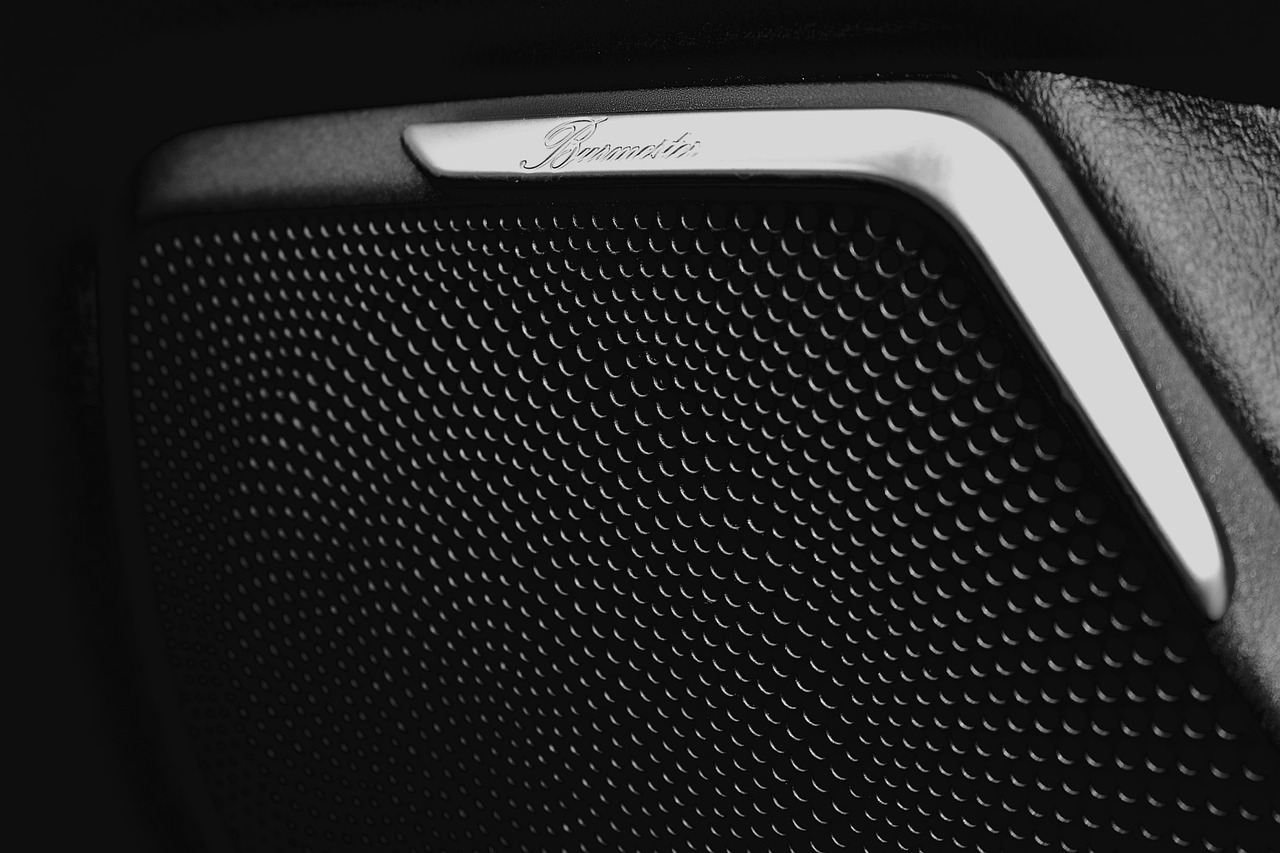
Identifying Trusted Brands
When it comes to choosing a home security system, identifying trusted brands is crucial for ensuring you make a wise investment. With so many options available, it can be overwhelming to sift through the noise and find brands that stand out for their reliability and performance. So, how do you go about pinpointing these reputable companies? First and foremost, consider the reputation of the brand in the industry. Brands that have been around for a while typically have a proven track record of delivering quality products and services. You can start by checking online reviews, customer testimonials, and ratings on various platforms.
Another effective way to gauge a brand's credibility is by looking at their certifications and affiliations. Trusted brands often have certifications from recognized organizations, which can serve as a badge of honor in the security industry. For example, brands that are part of the Electronic Security Association (ESA) or have undergone rigorous testing by the Underwriters Laboratories (UL) are generally more trustworthy. These certifications indicate that the brand meets specific safety and performance standards.
Moreover, don't underestimate the power of word-of-mouth recommendations. Talk to friends, family, or neighbors who have recently installed security systems. Their experiences can provide valuable insights into which brands offer reliable products and excellent customer service. Additionally, consider checking out forums and community groups related to home security. These platforms can reveal real user experiences that might not be highlighted in official reviews.
To help you navigate the sea of options, here's a quick comparison table showcasing some well-known security brands along with their notable features:
| Brand | Reputation | Key Features | Customer Rating |
|---|---|---|---|
| ADT | Established Leader | 24/7 Monitoring, Smart Home Integration | 4.5/5 |
| Ring | Innovative & Popular | Video Doorbells, DIY Options | 4.3/5 |
| SimpliSafe | Highly Rated | Affordable, Easy Installation | 4.7/5 |
| Vivint | Premium Service | Smart Home Control, Professional Installation | 4.6/5 |
Finally, always keep an eye on customer support. A brand that offers robust customer service can make a significant difference in your overall experience. Look for companies that provide multiple channels for support, such as phone, chat, and email, and ensure they have a reputation for being responsive and helpful. By taking these steps, you can confidently identify trusted brands that will protect your home and provide peace of mind.
Q: How do I know if a security brand is trustworthy?
A: Look for reviews, certifications, and recommendations from friends or family. Brands with a long-standing reputation and positive customer feedback are usually reliable.
Q: What certifications should I look for in a security brand?
A: Certifications from organizations like the Electronic Security Association (ESA) and Underwriters Laboratories (UL) indicate that a brand meets high safety and performance standards.
Q: Is customer support important when choosing a security system?
A: Absolutely! Good customer support can enhance your experience and help you resolve issues quickly, so choose a brand known for excellent service.

Learning from User Experiences
When it comes to choosing a home security system, there's no better insight than that of actual users. Their experiences can be a treasure trove of information, shedding light on the strengths and weaknesses of various systems. Have you ever wondered why some systems receive rave reviews while others are barely mentioned? It often boils down to real-life usage and the nuances that come with it. By digging into user experiences, you can uncover critical aspects that marketing materials might gloss over.
For instance, many users emphasize the importance of ease of use. A security system might boast advanced features, but if the interface is clunky or confusing, it can lead to frustration. Imagine coming home after a long day, only to struggle with a complicated app just to check your security cameras. User reviews frequently highlight how intuitive or challenging a system is, which can be a game changer in your decision-making process.
Another critical factor is customer support. Users often share their experiences with the support teams of various brands. Was help readily available when they needed it? Did they feel valued as customers? A system might be top-notch, but if the company behind it doesn’t provide reliable support, it can leave users feeling stranded. This is where reviews can act as a guiding light, helping you choose a system backed by a company that prioritizes its customers.
Moreover, users often discuss the reliability of their systems. Did the alarms go off at the right times? Were there any false alarms that disrupted their peace? These insights can help you gauge how dependable a security system is in real-world scenarios. For instance, a system that frequently malfunctions might not be worth the investment, no matter how appealing it looks on paper.
To further enrich your understanding, consider the following key points that users frequently mention in their reviews:
- Installation Experience: Many users share their thoughts on whether the installation process was straightforward or a headache. A system that is easy to set up can save you time and stress.
- Integration with Other Devices: Users often comment on how well their security system integrates with other smart home devices. A seamless experience can enhance the overall effectiveness of your security measures.
- Long-term Performance: Feedback on how systems hold up over time can be invaluable. Some systems might work well initially but falter after a few months, making long-term reviews essential.
Ultimately, learning from user experiences can empower you to make an informed choice. By tapping into the collective wisdom of those who have already navigated the waters of home security, you can avoid common pitfalls and find a system that truly meets your needs. So, before you make that purchase, take the time to read reviews and engage with the community. You’ll be glad you did!
1. How do I know which security system is right for me?
To determine the right security system, consider your specific needs, budget, and preferences. Research different types of systems and read user reviews to find one that aligns with your requirements.
2. Are DIY security systems effective?
Yes, DIY security systems can be effective if chosen wisely. Many users report satisfaction with their DIY setups, but it's essential to ensure that the system you select meets your security needs.
3. What should I look for in customer reviews?
Focus on aspects like ease of use, customer support experiences, reliability, and long-term performance. These factors can provide valuable insights into how well a system may work for you.
4. How important is professional monitoring?
Professional monitoring can provide an added layer of security, especially if you're not always able to monitor your system. However, self-monitoring can also be effective if you're diligent about checking alerts.
5. Can I integrate my security system with other smart devices?
Many modern security systems offer integration with smart home devices. Check the specifications of the system you're considering to ensure compatibility with your existing devices.
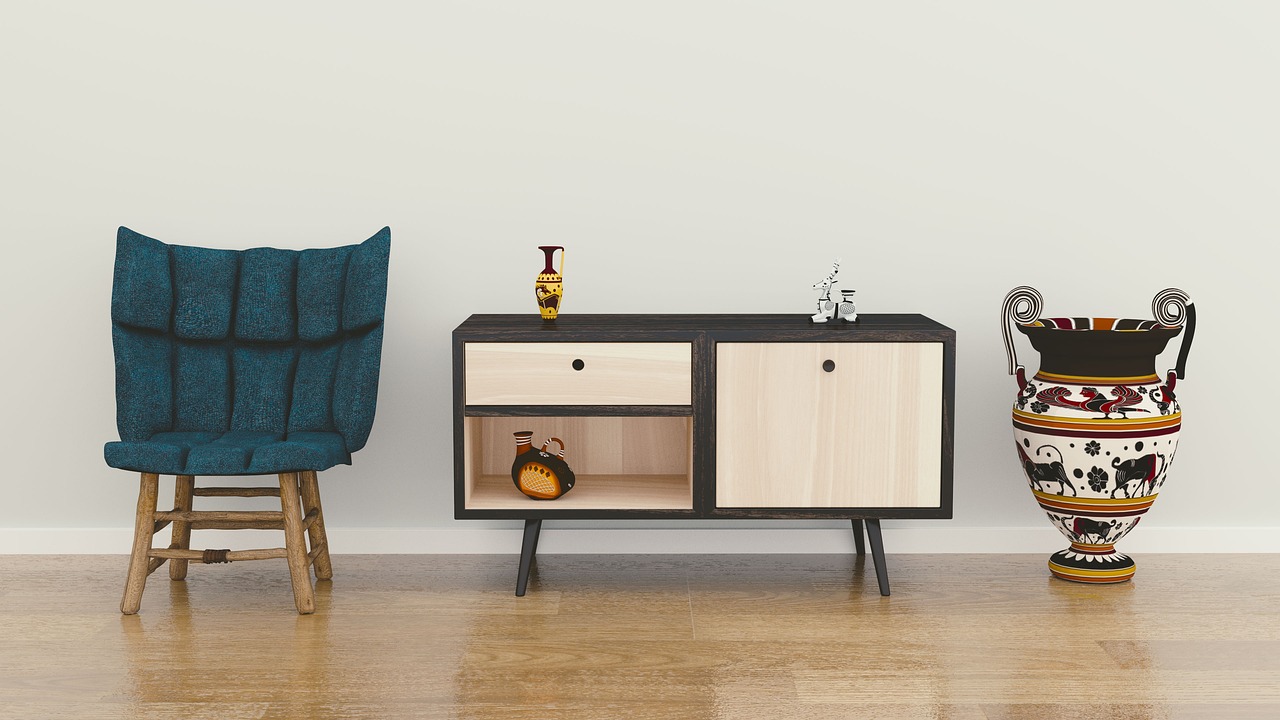
Future-Proofing Your Security System
In our fast-paced world, technology evolves at lightning speed, and so do the tactics of those who wish to breach our home security. Therefore, it’s essential to think ahead when choosing a security system. Future-proofing your security system means selecting solutions that not only meet your current needs but also adapt to the ever-changing landscape of technology and security threats. Imagine investing in a system today that becomes obsolete tomorrow; that’s not just a waste of money, it’s a risk to your safety!
When considering how to future-proof your security system, look for scalability and upgradability. A scalable system allows you to add more devices or features as your needs grow, whether it's expanding your home or integrating new technology. Upgradability ensures that your system can incorporate the latest advancements in security technology without needing a complete overhaul. This is crucial, as it saves you both time and money in the long run.
To illustrate, consider the following key features when evaluating potential systems:
| Feature | Description |
|---|---|
| Scalability | Ability to add new devices without replacing the entire system. |
| Upgradability | Capability to upgrade software or hardware as new technologies emerge. |
| Compatibility | Integration with existing smart home devices and platforms. |
| Remote Access | Control and monitor your system from anywhere using mobile apps. |
Additionally, staying updated with the latest security trends is vital. Technology trends can change rapidly, and being informed about new security measures, devices, and threats can help you stay one step ahead. Regularly researching and subscribing to security blogs or forums can provide valuable insights into what to look for in a security system. For instance, advancements in artificial intelligence and machine learning are paving the way for smarter security systems that can learn and adapt to your habits.
Finally, remember that a future-proof security system is not just about the hardware; it’s also about the company behind it. Choose a reputable brand known for its customer support and ongoing updates. This ensures that your system will continue to receive the necessary improvements and patches to address any vulnerabilities that arise. In a world where cyber threats are increasingly prevalent, having a responsive company behind your security system can make all the difference.
- What is a scalable security system? A scalable security system allows you to add more devices or features as your needs grow without needing to replace the entire system.
- How can I stay updated on security trends? You can stay updated by subscribing to security blogs, forums, and newsletters that discuss the latest advancements in home security technology.
- Why is upgradability important in a security system? Upgradability ensures that your security system can incorporate the latest technology and improvements, helping to protect your home against new threats.
- What should I look for in a security company? Look for a company with a good reputation, strong customer support, and a history of providing regular updates and improvements to their systems.

Scalability and Upgradability
When it comes to securing your home, scalability and upgradability are two essential factors that can significantly impact the longevity and effectiveness of your security system. Imagine investing in a system that meets your needs today but becomes obsolete in just a few years. That’s a nightmare scenario for any homeowner! Choosing a security system that can grow and evolve with your needs is crucial in maintaining optimal protection against potential threats.
Scalability refers to the ability of your security system to expand or adapt as your requirements change. For instance, if you start with a basic setup that includes a few cameras and sensors, you might want to add more devices later on as your family grows or as you expand your property. A scalable system allows you to do just that without needing to replace the entire setup. This flexibility not only saves you money but also ensures that your security measures remain robust over time.
On the other hand, upgradability focuses on the potential to enhance your existing system with the latest technology. Security technology is evolving at a rapid pace, and what seems cutting-edge today might be outdated tomorrow. An upgradable system allows you to incorporate new features, such as upgraded cameras with higher resolution, advanced motion detection capabilities, or even integration with the latest smart home devices. This adaptability can significantly enhance your overall security experience, making it easier to stay ahead of potential threats.
Here are some key considerations when evaluating scalability and upgradability:
- Device Compatibility: Ensure that any new devices you wish to add are compatible with your existing system.
- Software Updates: Look for systems that offer regular software updates, which can enhance functionality and security.
- Modular Options: Consider systems that allow you to add components modularly, making it easier to customize your setup.
In conclusion, investing in a security system that offers both scalability and upgradability is not just a wise choice; it's a necessary strategy for protecting your home in an ever-changing environment. By selecting a system that can grow with you and adapt to new technologies, you ensure that your home remains secure for years to come.
1. What is the difference between scalability and upgradability in security systems?
Scalability refers to the ability to expand your system by adding more devices, while upgradability focuses on enhancing existing components with new technology or features.
2. How can I determine if a security system is scalable?
Check if the manufacturer offers additional devices that can be easily integrated with your existing system, and look for modular options that allow for customization.
3. Are there any downsides to choosing a scalable system?
One potential downside is that not all scalable systems are compatible with all devices, so it's essential to do your research before investing.
4. How often should I upgrade my security system?
While it depends on your specific needs and the technology available, it's generally advisable to consider upgrades every few years or whenever significant advancements are made.
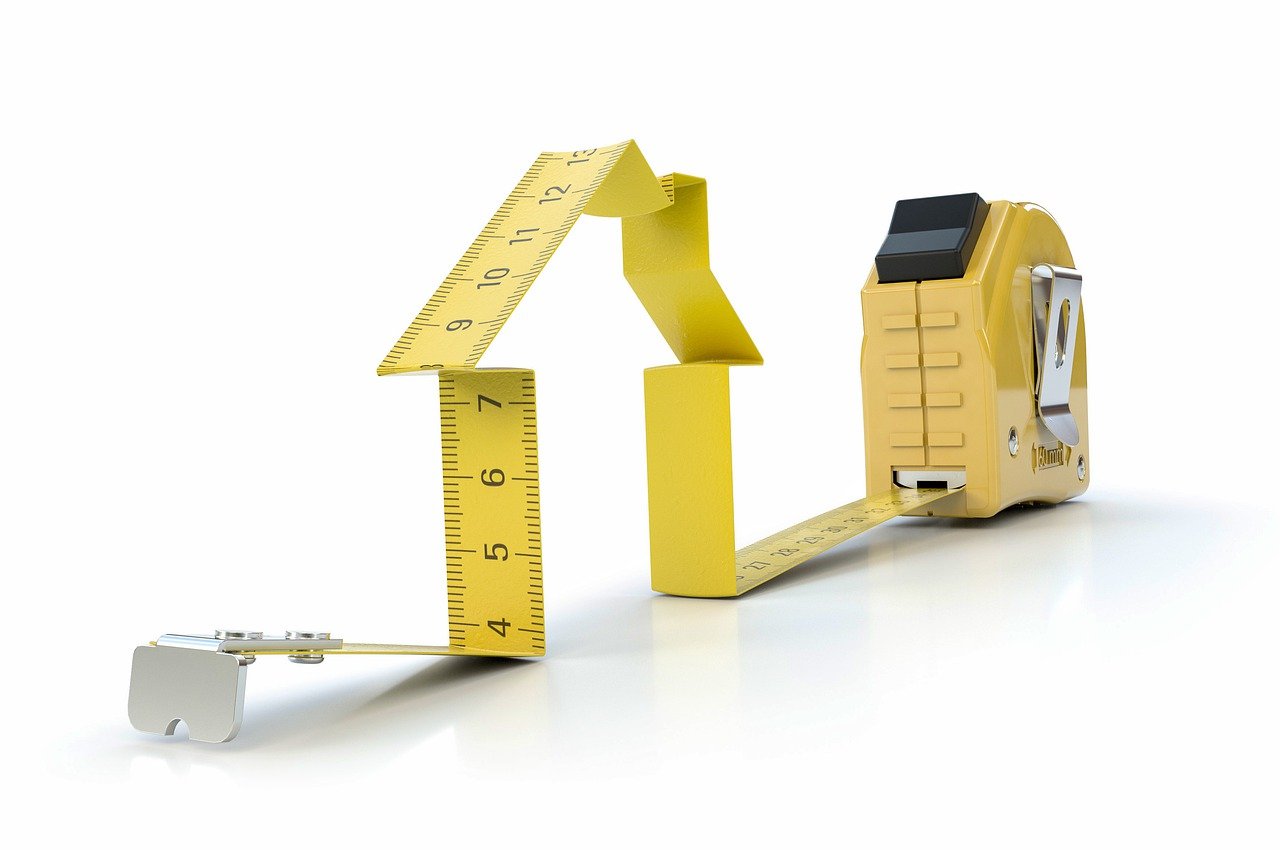
Staying Updated with Security Trends
In a world that's constantly evolving, keeping your home security system up-to-date is more crucial than ever. Just like fashion trends, security threats also change over time. What worked last year might not be sufficient today. So, how can you stay ahead of the curve? First off, it’s essential to stay informed about the latest advancements in technology and security practices. This means regularly checking reliable sources, such as security blogs, industry publications, and even social media channels dedicated to safety and technology.
Many homeowners may not realize that new threats emerge regularly, and staying educated can make a significant difference in your home’s safety. For instance, with the rise of smart home devices, hackers are becoming more sophisticated in their methods. They often target these gadgets as potential entry points into your home network. Therefore, understanding how to secure these devices is vital. Here are a few key areas to focus on:
- Smart Home Integration: As more devices become interconnected, knowing how to manage and secure them is essential.
- Cybersecurity Measures: With the increase in digital threats, implementing strong passwords and regular updates can protect your devices.
- Physical Security Enhancements: Innovations in locks, cameras, and alarms can provide better protection than traditional methods.
Additionally, consider attending local workshops or webinars on home security. These events often feature experts who can provide valuable insights and answer your questions directly. Networking with other homeowners can also give you a sense of community and shared experiences, making you feel more empowered in your security decisions.
Lastly, don’t forget to regularly review your security system. Technology is advancing at an incredible pace, and what was once cutting-edge can quickly become obsolete. By , you can not only protect your home more effectively but also adapt to new challenges as they arise. Remember, a proactive approach is always better than a reactive one when it comes to safeguarding your sanctuary.
Q: How often should I update my security system?
A: It's advisable to review your security system at least once a year, but stay informed about new technologies and threats as they arise.
Q: Are smart home devices safe?
A: While they offer convenience, smart home devices can be vulnerable. Ensure you use strong passwords and keep your devices updated to mitigate risks.
Q: What are the signs that I need to upgrade my security system?
A: If your system is outdated, if you’ve added new smart devices, or if you notice any unusual activity in your neighborhood, it may be time to consider an upgrade.
Frequently Asked Questions
- What type of security system is best for my home?
Choosing the right security system depends on your specific needs. Wired systems are reliable but can be harder to install, while wireless systems are easier to set up and offer flexibility. Smart security systems provide advanced features like remote access and integration with other smart devices, making them a popular choice for tech-savvy homeowners.
- Are professional monitoring services worth the cost?
Professional monitoring can provide peace of mind, as trained personnel respond to alarms and alerts. However, if you prefer hands-on control, self-monitoring through mobile apps can be a cost-effective alternative. Consider your lifestyle and security needs when deciding which option works best for you.
- How can I ensure my security system is future-proof?
To future-proof your security system, look for solutions that offer scalability and upgradability. This means choosing systems that can easily incorporate new technologies and features as they become available. Staying informed about security trends will also help you adapt your system to evolving threats.
- What are the key features I should look for in a security system?
Essential features include motion detection, video surveillance, remote access, and smart home integration. These features enhance the effectiveness of your security system and provide greater convenience, allowing you to monitor your home from anywhere.
- Can I install a security system myself?
Yes, many security systems are designed for DIY installation, allowing you to customize your setup according to your preferences. Just be sure to follow the manufacturer's instructions carefully to ensure optimal performance.
- How do I assess the costs associated with a security system?
When budgeting for a security system, consider both initial equipment costs and ongoing service fees. Research different options to find a solution that fits your budget while still providing reliable protection for your home.
- What should I consider when reading customer reviews?
Look for reviews that highlight the performance, reliability, and customer service of the security systems you’re considering. Pay attention to both positive and negative feedback to get a balanced view, and focus on reviews from users with similar needs to yours.





